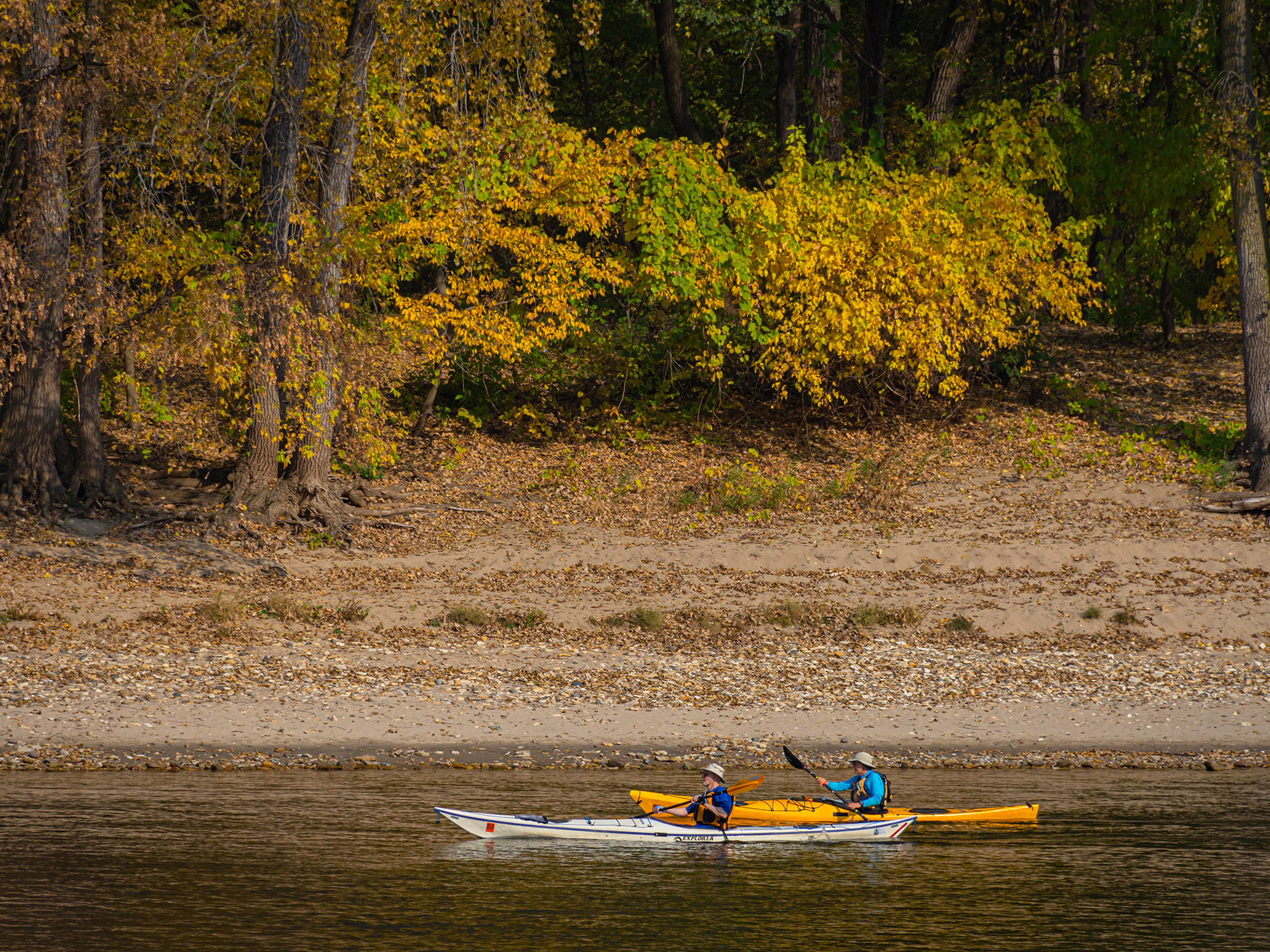5 ways you can care for the river while enjoying it

(Photo by David Wheaton for FMR)
Time on or near the water rejuvenates so many of us, inspiring us to continue the work of protection and restoration. As part of our 30 ways to help the river series, here are a few ways you can protect water and wildlife while you're enjoying the many beautiful places or river stretches here in the metro.
1. Know the guidelines before you explore new parks and places
Each park, natural area or stretch of the river will have different rules about how best to preserve and enjoy its habitat. Before you go, look up the site you're visiting and find out what kinds of activities (and four-legged friends) are allowed in order to protect habitat and be respectful. Bonus: You'll probably also find good maps and info on conditions.
Learn before visiting Scientific and Natural Areas, paddling Minnesota’s waters or visiting sacred sites like Wic̣aḣapi in St. Paul.
2. Respect the plants and animals around you
Witnessing plants bloom and grow might be the reason you visit a place, and a special wildlife encounter can be the highlight of an outing. Here are a few ways to respect the home of the plants and animals that draw us outside.
- In general, enjoy and get to know plants and fungi without picking them.
- If you find a place where foraging is allowed, remember that other animals and people may also depend on the resource you collect.
- Give animals space and don't offer them food.
- If you find an injured or orphaned animal, reach out to the Wildlife Rehabilitation Center of Minnesota.
3. Stop the spread of invasive species
As you explore our lakes and streams, help protect them by keeping invasive species at bay. Trailers and boats of all kinds can pick up mussels and plants. The spread of some species can significantly disrupt the next ecosystem you visit. So when you dock, clean off any visible plants or animals from the hull. Then drain any water you've picked up (including ballast tank, motor or bilge). This ensures you'll only bring family and friends along on your next boating adventure. Learn more from the DNR.
Just as your boat can pick up invasive species, so can your boots, gear and firewood. Remove seeds and mud from your boots with a boot brush or cloth. To prevent invasive species from spreading via firewood, a good rule of thumb is to use wood sourced from within 10 miles of your campfire. Visit FirewoodScout.org to find safe nearby vendors.
4. Pick up litter as you go
Though FMR hosts trash cleanups along the river, we're big fans of DIY, as-you-go cleanups too. If you're on the river or walking near its banks, pull on some work gloves to stay safe and collect trash as you move. Cleaning up litter doesn't just make places look better; if left to break down in place, plastic, styrofoam and other materials can harm wildlife and water quality. And don't forget microtrash counts! Even though cigarette butts are small, they can be incredibly toxic to plants and animals.
5. Get the lead out of shot and tackle
For years, manufacturers of sinkers, jigs and bullets used lead because it was inexpensive and easy to mold. But lead is a neurotoxin for wildlife and for humans. It leaches into the ground and water or straight into fish, eagles and loons.
Minnesota hunters and anglers proud of their conservation heritage choose lead-free shot and tackle. Want one more way to protect river wildlife? Make sure to dispose of your fishing line (or even recycle it).
30 ways you can protect the river
Looking to take action and make changes for the river you love?
We've rounded up 30 ways to get started.